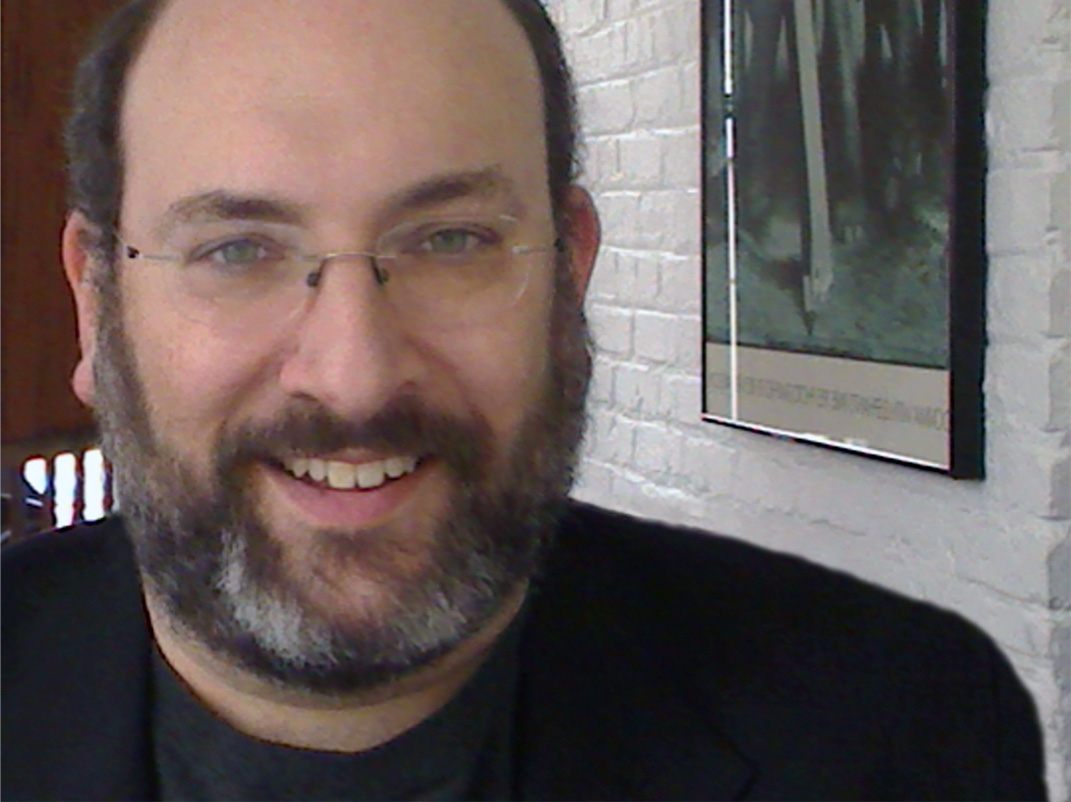January 10th, 2011 by DavedeBronkart in Better Health Network, Health Policy, News
No Comments »

In December, the Society for Participatory Medicine’s executive committee appointed health law attorney David Harlow to represent the Society in public policy matters. Regular readers of HealthBlawg::David Harlow’s Health Care Law Blog know what a patient-centered, participatory thinker David is. This is his first report.
 I am delighted to offer my first report as Public Policy Committee Chair for the Society of Participatory Medicine. I encourage all of you who are not yet Society members to join, and I encourage new and old members to consider volunteering to help with the wide range of public policy issues facing us today.
I am delighted to offer my first report as Public Policy Committee Chair for the Society of Participatory Medicine. I encourage all of you who are not yet Society members to join, and I encourage new and old members to consider volunteering to help with the wide range of public policy issues facing us today.
Over the past couple of months, the Public Policy Committee has gotten its sea legs. We are beginning to add the Society’s voice to the national discourse on patient engagement in a formal manner. As planning for health reform and related initiatives becomes more concrete, it is clear that patient engagement and patient-centeredness are key issues to be considered. For example, it was encouraging to hear Centers for Medicare and Medicaid Services (CMS) Administrator Don Berwick speak about the “Triple Aim” at the Accountable Care Organization (ACO) workshop this fall, and explicitly link the achievement of the triple aim — better care for individuals, better health for populations, and reduced per-capita costs — to patient engagement and empowerment.
There will be many opportunities for the Society to engage with policymakers, payors and provider organizations as this work continues. CMS and its many related organizations, as well as many provider and private sector payor organizations recognize that without maintaining a focus on the patient at the core, health reform and related health IT initiatives cannot be successful. We’ve kicked things off on two fronts — ACOs and Stage 2 Meaningful Use rules. Read more »
*This blog post was originally published at e-Patients.net*
December 29th, 2010 by eDocAmerica in Better Health Network, Opinion
No Comments »

Recently, I was involved in a discussion on an email list serve and decided to takes some of my comments on patient autonomy and blog about them. This arose following a debate about whether the term “patient” engendered a sense of passivity and, therefore, whether the term should be dropped in favor of something else, like “client” or something similar.
Having participated in the preparation and dissemination of the white paper on e-patients, I don’t see the need for “factions” or disagreements in the service of advancing Participatory Medicine. As Alan Greene aptly stated: “This is a big tent, with room for all.”
I want all of my patients to be as autonomous as possible. In my view, their autonomy is independent of the doctor-patient relationship that I have with them. They make the choice to enter into, or to activate or deactivate, the relationship with me. They may ignore my input, seek a second opinion, or fire me and seek the care of another physician at any time. They truly are in control in that sense. The only thing I have control over and am responsible for is trying to provide the best advice or consultation I can. Read more »
*This blog post was originally published at eDocAmerica*
December 21st, 2010 by DavedeBronkart in Better Health Network, Opinion
2 Comments »

 If you don’t truly understand how draining it can be to live with chronic illness, including chronic pain, go read The Spoon Theory right now. In five minutes it forever changed my own awareness of my wife’s arthritis and bone pain.
If you don’t truly understand how draining it can be to live with chronic illness, including chronic pain, go read The Spoon Theory right now. In five minutes it forever changed my own awareness of my wife’s arthritis and bone pain.
On Twitter I saw “spoonies” raving about this months ago, but I finally took time to read it: 2,100 words and worth every second. Also, on Twitter follow @bydls – “But you don’t look sick!” – and explore their smart website, where they’re wisely selling posters of the story for doctors’ waiting rooms, and everything else imaginable in modern outreach through social media.
These are smart people, and this is a powerful piece of writing.
*This blog post was originally published at e-Patients.net*
September 28th, 2010 by DavedeBronkart in Better Health Network, Health Tips, News, Opinion
No Comments »

You can’t be well-empowered if you hear advice wrong. That’s why in a participatory relationship, an essential skill is accurate handoff of information.
The Foundation for Informed Medical Decision Making (FIMDM), catchily pronounced “fimdim,” has been working for years to improve patients’ knowledge of options and alternatives. In [the September 20th] Boston Globe Liz Cooney talks with people from FIMDM about the issue. An excerpt:
What doctors explain and what patients understand might be two very different things, recent research suggests.
Ideally, patients talk with their doctors about the pros and cons of a particular treatment, weighing the risks and benefits, exploring alternatives — including doing nothing — and then come to a conclusion. That’s the goal of the informed consent process, best known by the paperwork patients sign at the end saying they heard doctors describe what they may be getting into.
If only it were that simple.
[This] article springboards off Cooney’s piece two weeks ago on heart stents, reported here by Dr. John Grohol as Doctors Say One Thing, Patients Hear Another.
A Boston non-profit, FIMDM is the force behind Gary Schwitzer’s excellent Health News Review service, which analyzes health news in the media, teaching e-patients and policy people to sift the gold from the garbage.
*This blog post was originally published at e-Patients.net*
September 10th, 2010 by DavedeBronkart in Better Health Network, Health Policy, Health Tips, Opinion
No Comments »

The “Running A Hospital” blog has another discussion of dealing with medical error. This time, the hospital has opened up an error of its own (a “wrong side” surgery) for examination by the Open School of the Institute for Healthcare Improvement (IHI).
Sample comments:
— From IHI’s Jim Conway: “Our systems are too complex to expect merely extraordinary people to perform perfectly 100 percent of the time. We as leaders must put in place systems that support great practice by people who suffer from being human and will make mistakes.”
— From a patient who had two surgical errors in ten months: “After years of suffering through our incredibly brutal tort(ure) system I finally had the chance to talk to the surgeon. The most meaningful words he spoke were the descriptions of how badly he suffered also from the event we shared in that OR. Finally I was not alone!”
As we’ve often said, participatory medicine brings a new kind of partnership between patient and caregiver. Neither denial nor a Wall of Silence (famous book) has any place in a healthy relationship. It breaks my heart to think of the good lives that are ruined by our cultural inability to deal with honest errors in complex situations.
Yes, as Linda Kenney of MITSS mentions in a comment, some employees (in any industry) are reckless and must be weeded out. That too can be a denial issue. But first, we need open discussion.
*This blog post was originally published at e-Patients.net*
 I am delighted to offer my first report as Public Policy Committee Chair for the Society of Participatory Medicine. I encourage all of you who are not yet Society members to join, and I encourage new and old members to consider volunteering to help with the wide range of public policy issues facing us today.
I am delighted to offer my first report as Public Policy Committee Chair for the Society of Participatory Medicine. I encourage all of you who are not yet Society members to join, and I encourage new and old members to consider volunteering to help with the wide range of public policy issues facing us today.












